Phonics recognition Normal Worksheets for Ages 7-9
10 filtered results
-
From - To
Discover our engaging Phonics Recognition Worksheets designed specifically for children ages 7-9! These printable resources encourage young learners to enhance their reading skills through fun and interactive activities. Each worksheet is crafted to promote phonetic awareness, helping students recognize and understand letter sounds, blends, and patterns systematically. Ideal for classroom or home learning, our worksheets strike the perfect balance between education and enjoyment, making phonics practice an exciting journey. With varied exercises, kids will enjoy mastering phonics, building their confidence, and improving their literacy skills. Explore our collection today and support your child’s reading development with these essential tools!
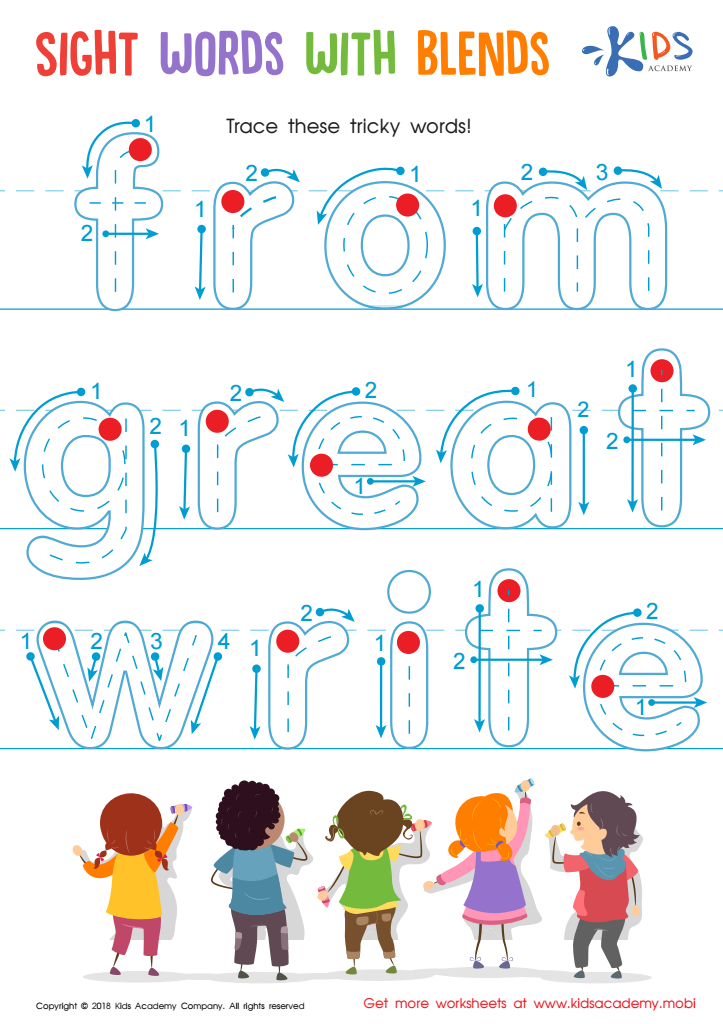

Sight Words with Blends Worksheet
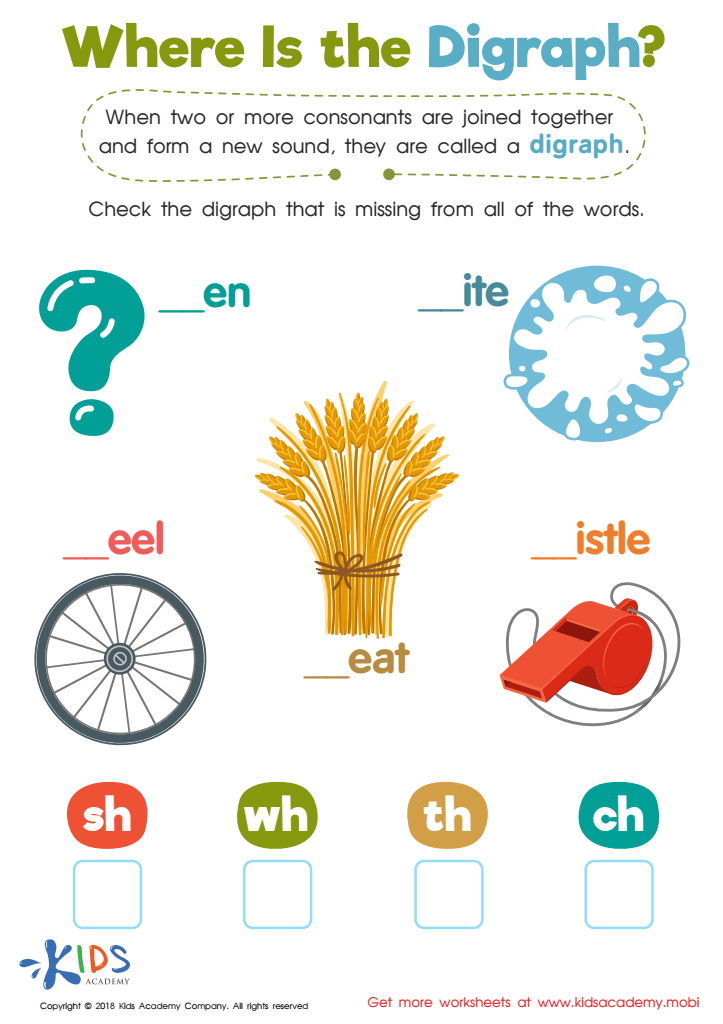

Where Is the Digraph? Worksheet
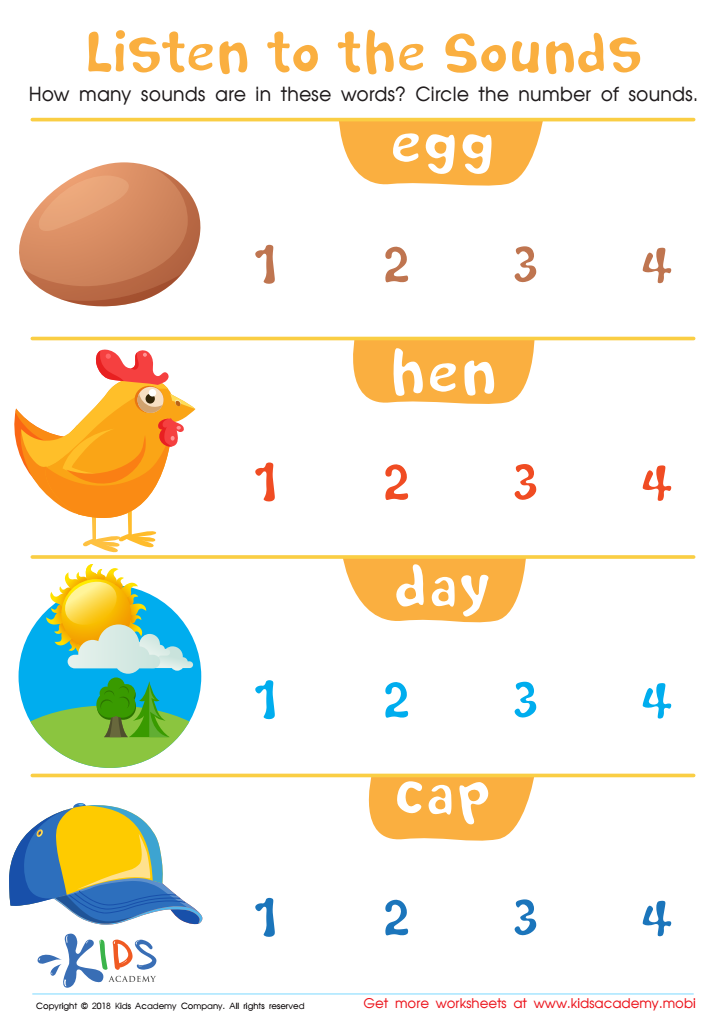

Listen to the Sounds Worksheet


Phonics and Word Recognition: Assessment 1 Worksheet
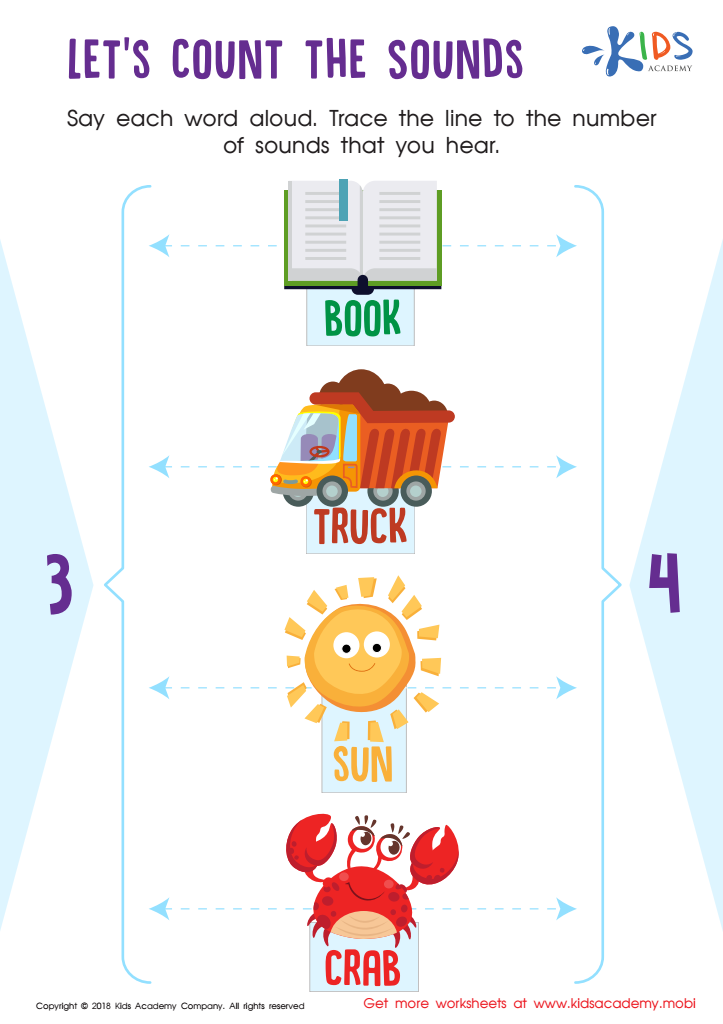

Let's Count the Sounds Worksheet
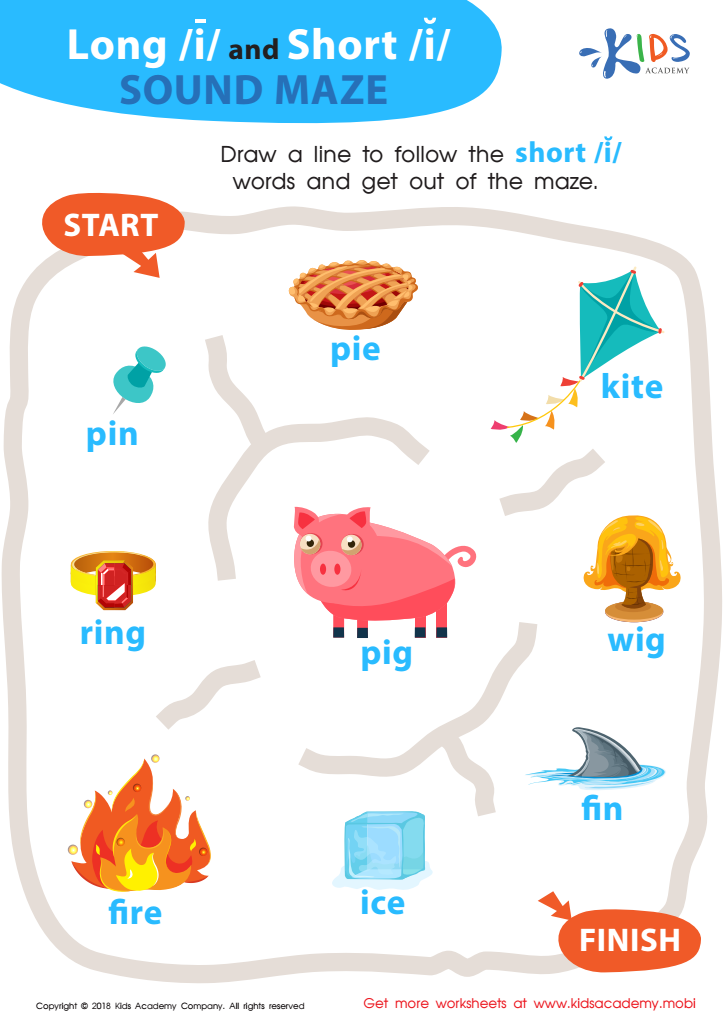

Reading: Long I and Short I Sound Maze Worksheet
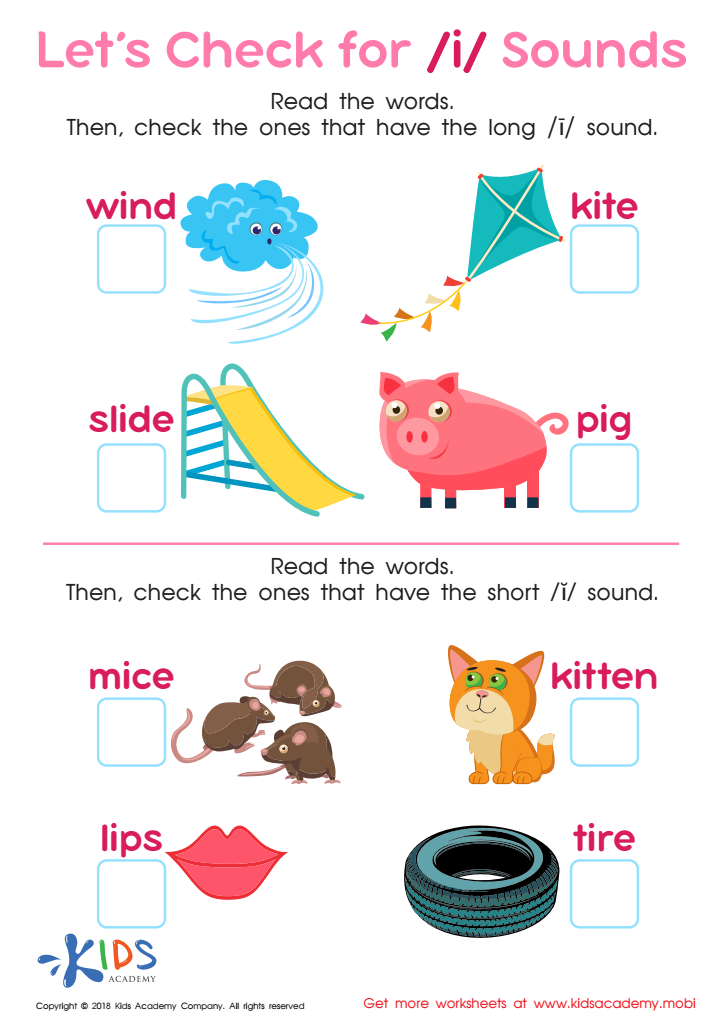

Let's Check for «i» Sounds Worksheet
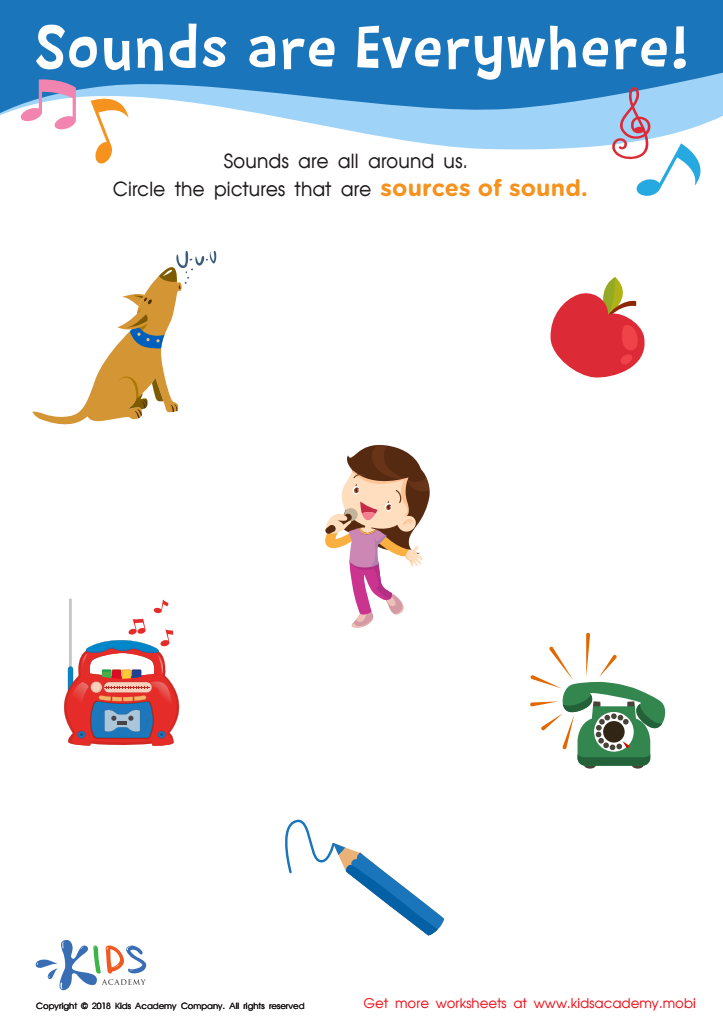

Sounds Are Everywhere! Worksheet


Phonics and Word Recognition: Assessment 2 Worksheet
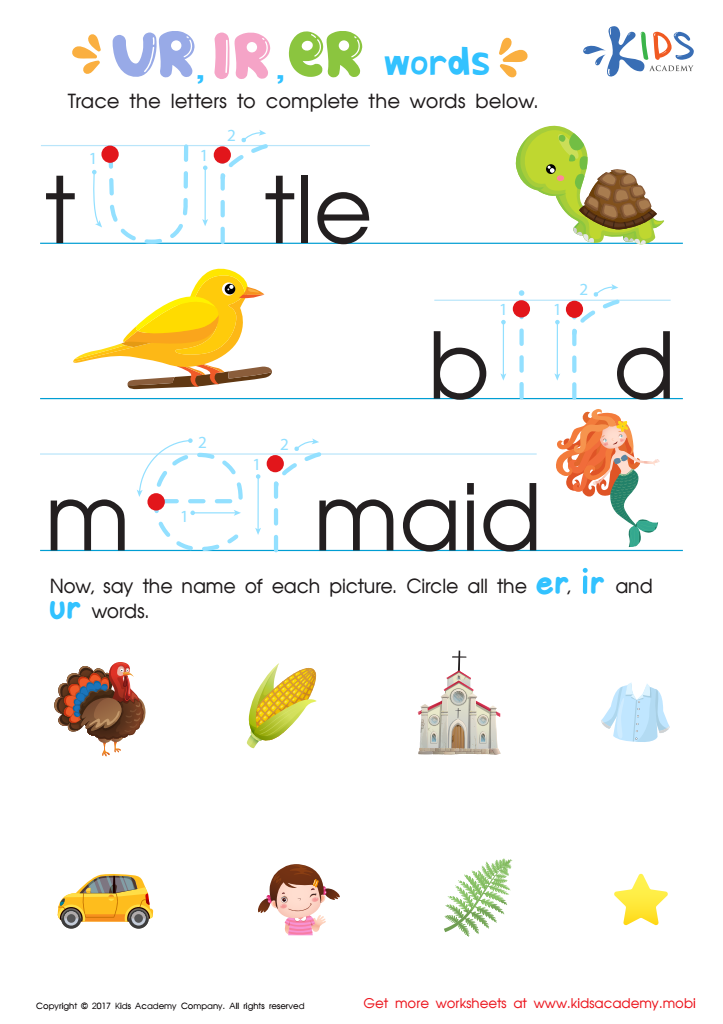

IR UR ER Words Worksheet
Phonics recognition is crucial for children aged 7-9 as it lays the foundation for proficient reading and writing skills. At this age, children transition from learning to read to reading to learn, making strong phonics skills essential. Understanding how letters combine to form sounds helps children decode unfamiliar words, enhancing their reading fluency and comprehension.
Moreover, phonics knowledge assists in building vocabulary, which is vital for effective communication and academic success. As children engage with increasingly complex texts, their ability to recognize phonetic patterns boosts their confidence, making them more willing to participate in reading activities.
Teachers play a pivotal role in reinforcing phonics through targeted instruction and engaging activities, while parents can support this learning at home by incorporating phonics games and reading practices. This collaboration enhances children's understanding and enjoyment of reading.
Additionally, a solid grasp of phonics contributes to better writing skills, as children learn to spell words more accurately. Overall, fostering phonics recognition during this formative stage not only helps children develop literacy skills, but also cultivates a lifelong love for reading, which is intimately linked to overall educational achievement and personal growth.
 Assign to My Students
Assign to My Students



.jpg)

.jpg)








